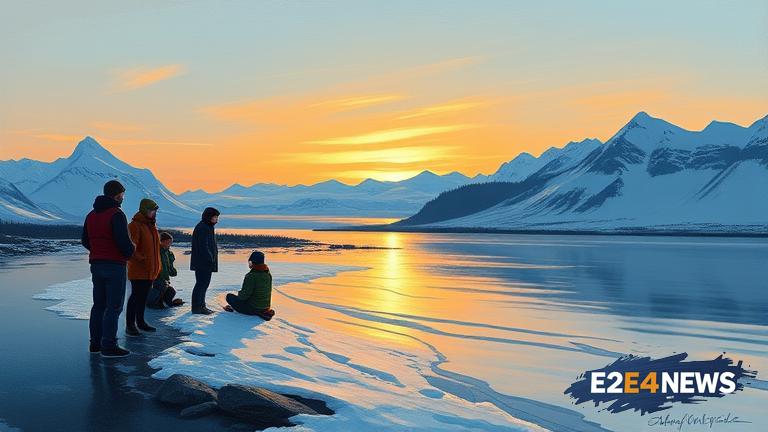The state of Alaska recently hosted the Arctic Encounter, a significant event that brought together experts, policymakers, and stakeholders to discuss the future of the Arctic region. The conference aimed to address the various challenges and opportunities facing the Arctic, including climate change, natural resource management, and economic development. The event featured a range of speakers and panel discussions, providing a platform for attendees to share their knowledge and expertise. One of the primary focuses of the conference was the impact of climate change on the Arctic environment, including rising temperatures, sea ice melting, and changes in weather patterns. The discussions highlighted the need for urgent action to mitigate the effects of climate change and to develop strategies for adapting to the changing environment. The conference also explored the potential economic opportunities in the Arctic, including the development of natural resources such as oil, gas, and minerals. However, the event also emphasized the importance of responsible and sustainable development, taking into account the region’s unique environmental and cultural characteristics. The Arctic Encounter also addressed the issue of natural risks, including the potential for earthquakes, tsunamis, and other natural disasters. The conference highlighted the need for improved emergency preparedness and response measures, as well as the importance of international cooperation in addressing these risks. In addition to these topics, the event also covered issues related to Arctic governance, including the role of international organizations and the need for effective regulation and management of the region’s resources. The conference featured a range of high-profile speakers, including government officials, industry leaders, and academic experts. The event was attended by representatives from across the Arctic region, including Alaska, Canada, Norway, and Russia. The Arctic Encounter was seen as an important step forward in promoting cooperation and collaboration among Arctic nations and stakeholders. The event helped to raise awareness about the challenges and opportunities facing the Arctic and provided a platform for the development of new ideas and initiatives. The conference also highlighted the importance of involving indigenous communities in decision-making processes related to the Arctic, recognizing their unique knowledge and perspectives on the region. Overall, the Arctic Encounter was a significant event that helped to advance our understanding of the Arctic region and its future. The conference demonstrated the need for continued cooperation and collaboration among Arctic nations and stakeholders, as well as the importance of addressing the region’s unique challenges and opportunities. As the Arctic region continues to evolve and change, events like the Arctic Encounter will play an important role in shaping its future. The conference provided a valuable opportunity for attendees to learn from each other and to develop new partnerships and collaborations. The event also helped to promote a greater understanding of the Arctic region and its importance in the global context. In the coming years, it will be important to continue monitoring the developments in the Arctic and to address the challenges and opportunities that arise. The Arctic Encounter was an important step forward in this process, and it is likely that similar events will be held in the future to continue the conversation and to promote cooperation and collaboration among Arctic nations and stakeholders.
